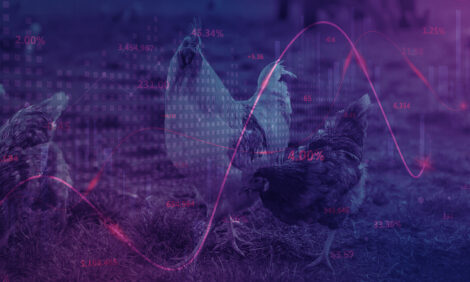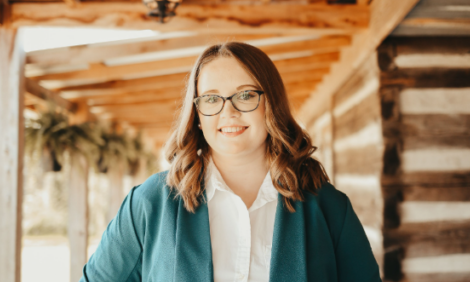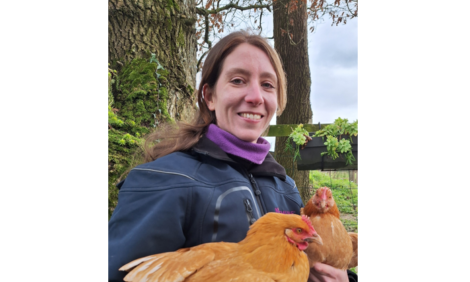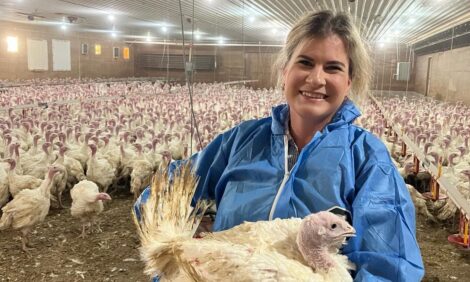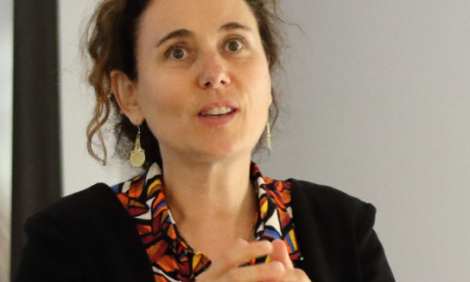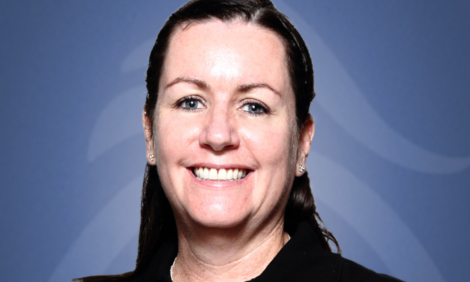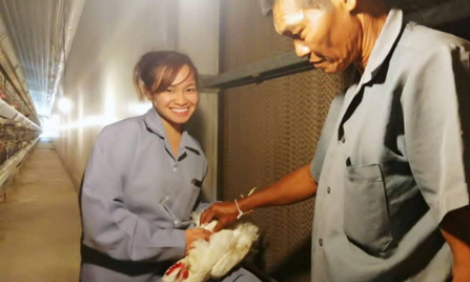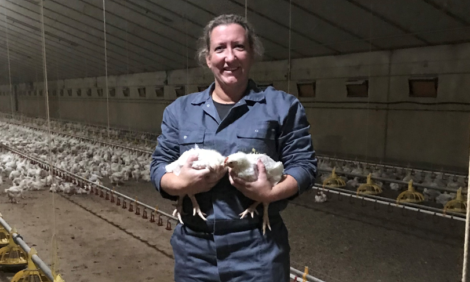



Women in Poultry: Abigail Reith
Learn more about Dr. Abigail Reith senior technical services veterinarian at ZoetisAbigail Reith, DVM, MAM, DACPV, has been a senior technical services veterinarian on the poultry team with Zoetis for almost five years. She earned her DVM degree at the University of Missouri and then her Master’s of Avian Medicine at the University of Georgia, before joining Zoetis. She lives in northwest Arkansas and covers Arkansas, Missouri, Oklahoma, Kentucky, Tennessee and Nebraska.
Describe a typical day in your current role?
As an allied veterinarian, there is no way to really define a typical day in my role. My schedule changes on a daily basis, revolving around customer requests and product support. My goal is to assist poultry producers in the technical evaluation of production issues and help provide logical solutions. I collaborate very closely with Zoetis account managers to provide timely support and technical information regarding the value and efficacy of our products. One example of value-added support would be a day spent doing a necropsy session at a customer’s broiler complex. This day would include many flocks brought into one location to monitor such things as respiratory, immune, musculoskeletal and enteric health. Another example of my veterinary technical support is troubleshooting high mortality on farms and collecting appropriate samples to submit for diagnostic testing.
What’s unique about your role?
I don’t only go to complexes and farms to provide veterinary support but I also spend a lot of time training and teaching service technicians at different complexes. I am typically teaching them about general poultry diseases, immunology, and how different products work and can provide solutions to help the health and performance of their birds. There’s a lot of employee turnover in our industry, so there’s been a very high demand for training.
What does the future of poultry health look like in terms of preventing and treating disease?
As the poultry industry has moved away from using antibiotics, preventive medicine has become a much higher priority. In the future, we’re going to need to be well-prepared with preventive medicine as well as continuing to enhance our farm management, poultry genetics and farm technology. Training and support will always stay a high priority for the poultry industry.
Are there individuals or organizations in poultry who you’ve found particularly inspirational?
Even while I was a student, Zoetis always stood out to me as a company with an amazing team of veterinarians and a culture based on solid core beliefs. The company has continued to support my professional development and individual goals. The team atmosphere and leadership continue to inspire me.
In addition, Megan Batson, the account manager I work with here in northwest Arkansas, was critical in my transition from school to veterinarian in the field. Her skills in communication and organization are extremely inspiring. She is incredibly smart and determined and handles all of these work responsibilities while also staying present and supportive with her husband and kids at home.
What outstanding challenge facing the poultry industry would you most like to solve?
Over the last few years, Enterococcus cecorum has become a hot topic in the industry, causing significant disease and livability issues. Solutions are extremely limited in a No Antibiotics Ever (NAE) environment, and I hope to continue learning and working toward finding potential solutions.
What’s the most exciting innovation that you see on the horizon for the poultry industry?
I think we need to continue exploring automation in the industry from the hatchery to the processing plant. As an industry, we struggle with employee retention, especially in physically demanding jobs. More automation could allow our industry to be more efficient and run smoother and more consistent day to day.
We can never remove the grower from the broiler house, and we shouldn’t strive to do that, but the more we can automate sensors and alarms, the better we can maintain the environment around birds and help improve animal health and well-being.
What are you most excited about in the next five to 10 years regarding the poultry industry?
As an industry, I am excited to continue learning about new research and developments at scientific meetings and other forums. Specifically, I look forward to personal and professional growth and continuing to build trusting relationships with our customers. I also look forward to cheering on my colleagues I went to school with and watching them grow as well. I couldn’t be more grateful for the poultry industry and community I have been welcomed into with open arms.








